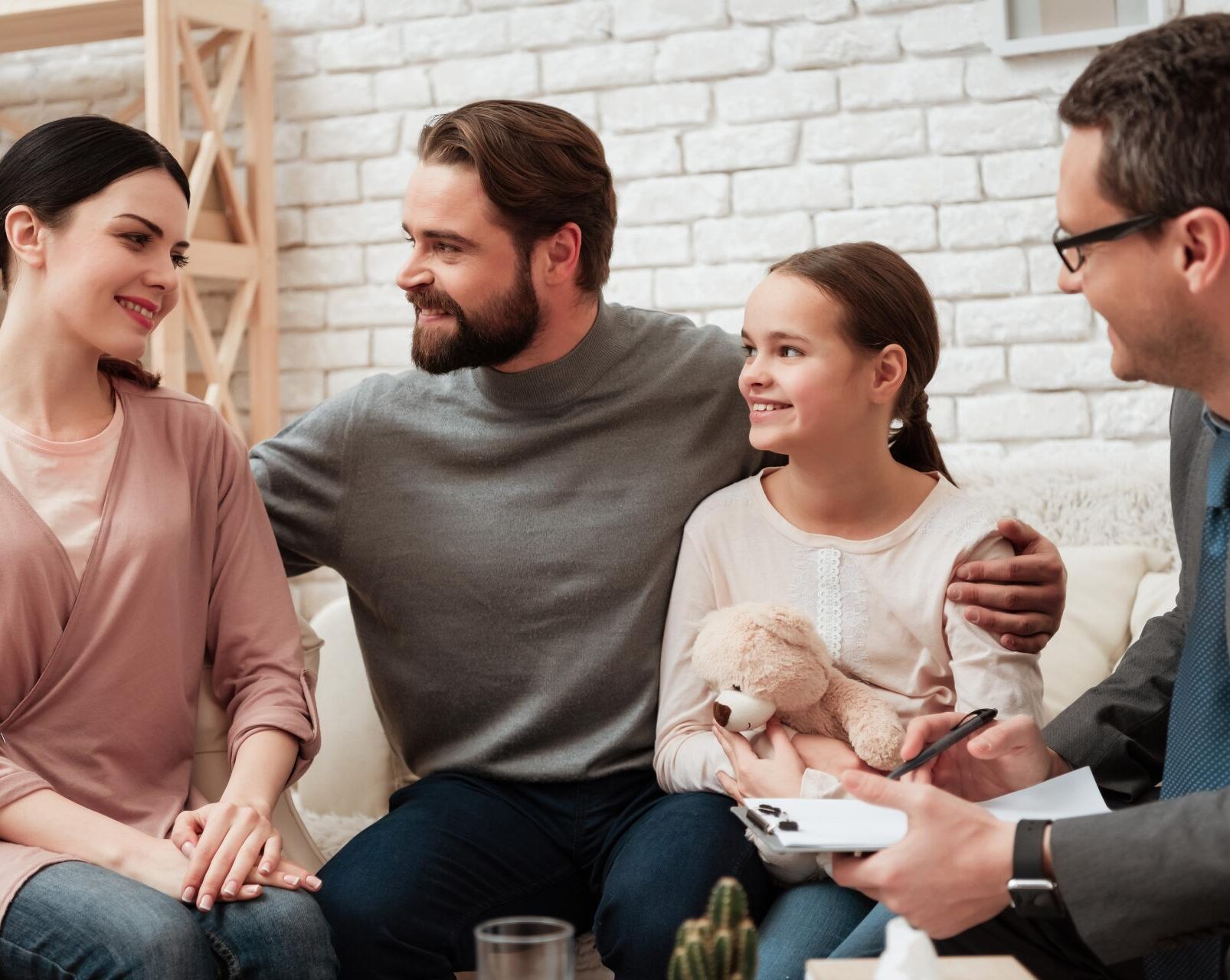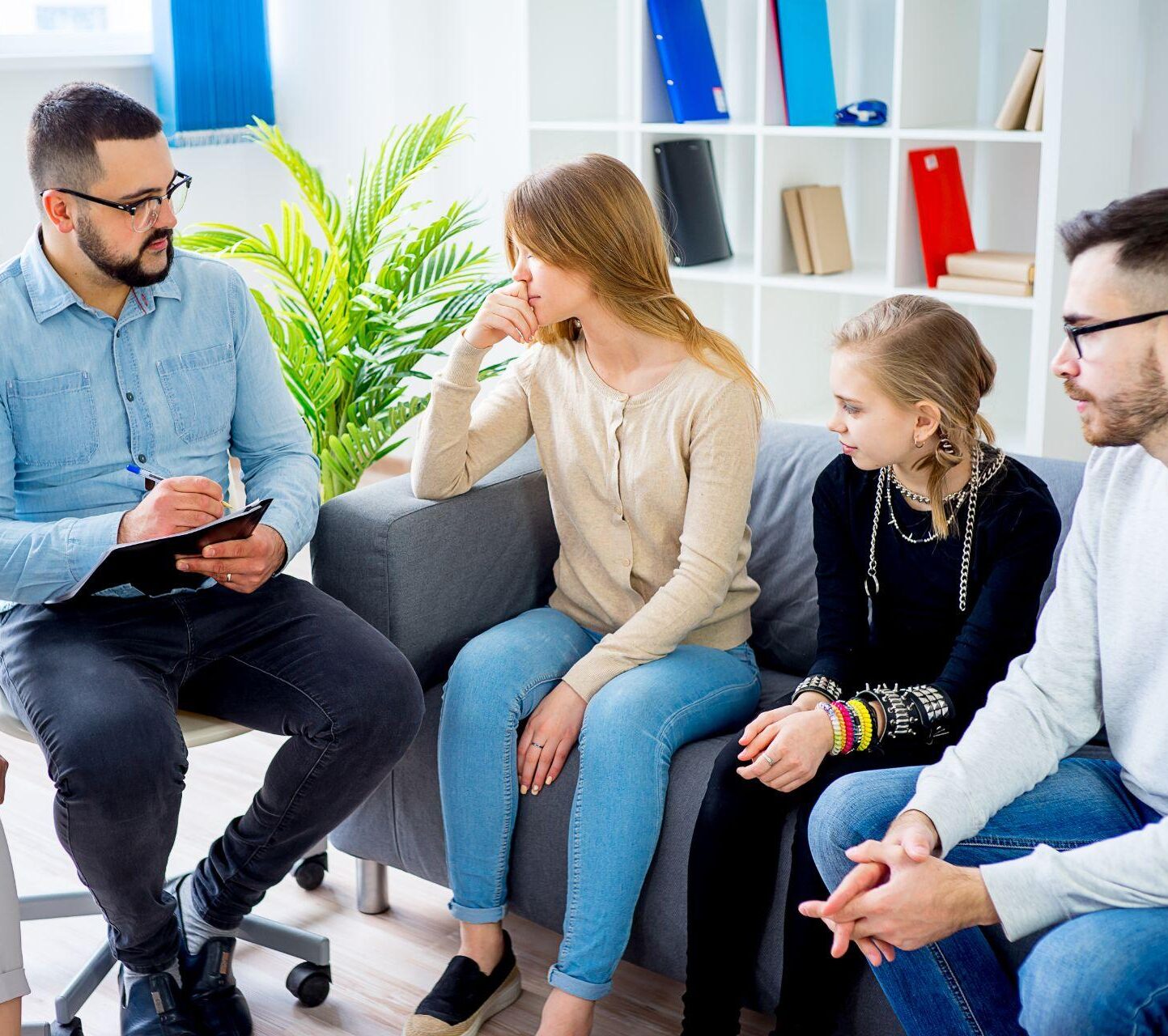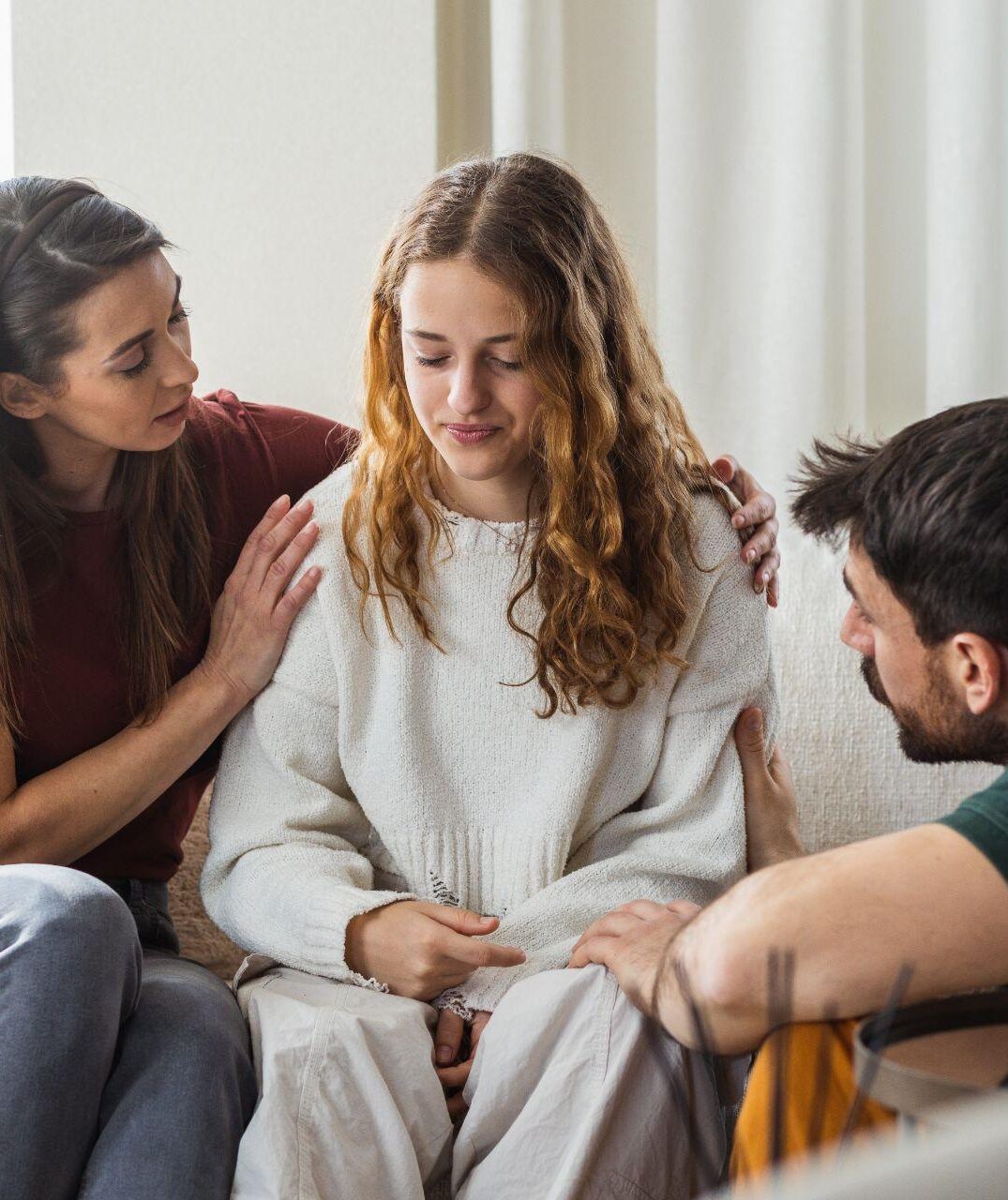Substance abuse doesn’t just affect the addicted person—it affects everyone around them. Issues like broken communication, ignored responsibilities, and deceptive behaviors can severely damage relationships with spouses, parents, siblings, and children. Part of a good recovery treatment plan is learning to rebuild family relationships and navigate them in healthier ways.
At Del Arroyo Recovery Center in Southern California, we focus on providing holistic, big-picture treatment. In addition to addressing clients’ substance use disorders and mental illness, we offer valuable family therapy and support throughout the process. Our goal is to set people up for long-lasting recovery, and that includes creating healthy habits and strengthening relationships to make family life better after rehab.

The Importance of Family Support During Addiction Treatment
Family relationships are some of the most important bonds a person can have. If they’re good, they can help us succeed and feel fulfilled. If they’re bad, they can cause deep emotional and psychological pain. When overcoming a drug or alcohol addiction, family involvement and a supportive environment provide powerful motivation and encouragement.
When family members have been hurt by addiction, it can be hard to forgive or trust again. Just like the addiction affects the family, family dynamics can affect the addiction. Emotional distress, financial issues, infighting, and other problems can be triggers for substance use disorders, further contributing to the cycle of drug addiction.
With family therapy for addiction, loved ones can work through family and addiction issues together and create healthier bonds. Even when relationships are good, help from a family therapist can teach them the best ways to support their loved one throughout addiction recovery.
Del Arroyo Recovery Center’s Approach to Family Therapy for Addiction
Our approach to family addiction therapy is one that prioritizes empathy, safety, and communication. Our addiction therapists create a safe, supportive space where clients and their families can share their thoughts and feelings without it turning into a fight. All are encouraged to consider each other’s perspectives, as well as how their words and actions affect one another. If there are co-occurring mental health disorders, families can learn more about each mental health diagnosis and how to help their loved one manage it.
Communication skills are a key part of our Agoura Hills, CA addiction counseling programs, as they help families function better and increase clients’ chances of long-term success. When they can properly communicate their needs and feelings, they don’t have to struggle with decisions or turn to unhealthy habits.


Our Family Counseling Strategy
In our Agoura Hills family therapy program, our addiction therapists focus on several key goals:
- Building effective communication skills: These include the ability to express thoughts, feelings, and needs clearly and calmly to reduce confusion and conflict, making it easier to navigate problems in family relationships.
- Creating a safe and sober home environment: Family members should be prepared to support their loved one by creating a safe, substance-free household that promotes good mental health.
- Improving family links and bonds: Creating healthier family bonds helps heal past issues and promotes better future relationships. This reduces stress, preventing relapse and helping the family function better overall.
- Rebuilding trust in relationships: Trust is often one of the first things to be broken in a relationship affected by addiction. In therapy sessions, clients and family learn to take accountability and practice being open and honest in order to build a healthy, trusting relationship again.
Achieving Sobriety with Evidence-Based Therapy
To achieve these goals, our licensed therapists in Agoura Hills, California, use a variety of evidence-based therapeutic methods, including:
- Cognitive Behavioral Therapy (CBT): Thought-focused psychotherapy in which clients learn to challenge negative thoughts and respond to things in healthier ways.
- Dialectical Behavior Therapy (DBT): Behavior-focused therapy that helps individuals manage their emotions and improve interpersonal skills.
- Group Therapy: Group sessions with peers in treatment where clients can share experiences and receive support from one another.
- Couples Therapy: Professionally led counseling for couples dealing with the impacts of addiction on their relationship.
- Holistic Therapies: Complementary therapies that promote well-being, such as music therapy, physical exercise, meditation, 12-step support group meetings, etc.
Using these addiction therapy techniques, our Los Angeles family therapists help clients and their loved ones cope with addiction, set healthy boundaries, and support one another through the recovery process.


When Families Heal Together, Recovery Lasts
By promoting healthier family dynamics and improving communication between loved ones, family psychotherapy helps create an environment that supports long-lasting recovery. In addition to providing powerful addiction support, it helps the entire family unit function better, reducing emotional triggers that could lead to relapse. Everyone can express and work through issues with licensed therapists, increasing family engagement and strengthening relationships.
Begin Your Journey at Del Arroyo Recovery Center in Agoura Hills, CA
Family therapy is crucial to healing family relationships affected by addiction, and our Los Angeles treatment services are designed to truly meet families’ emotional and psychological needs.
If you or a family member are struggling with addiction, our experienced psychologists and drug addiction specialists can help you end the cycle and rebuild strong, healthy relationships.

Contact us today to learn more about our Agoura Hills detox services and behavioral therapies or to talk to an admissions specialist.
